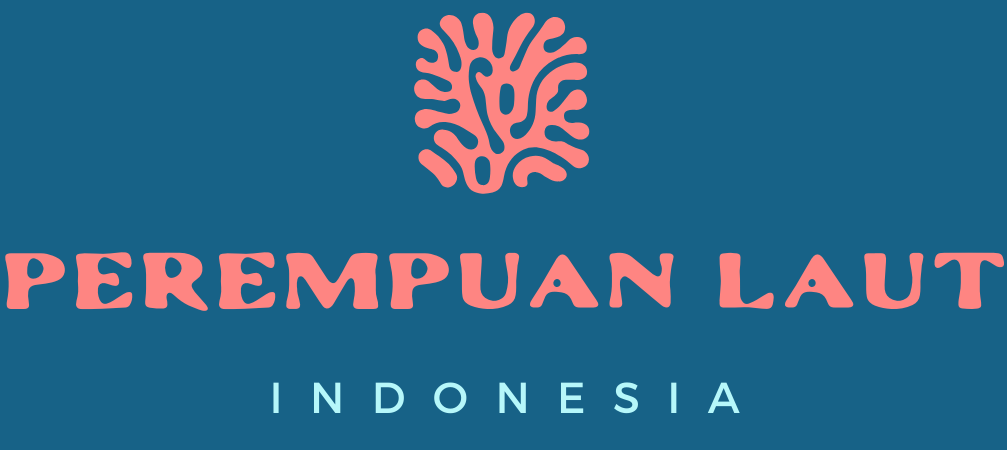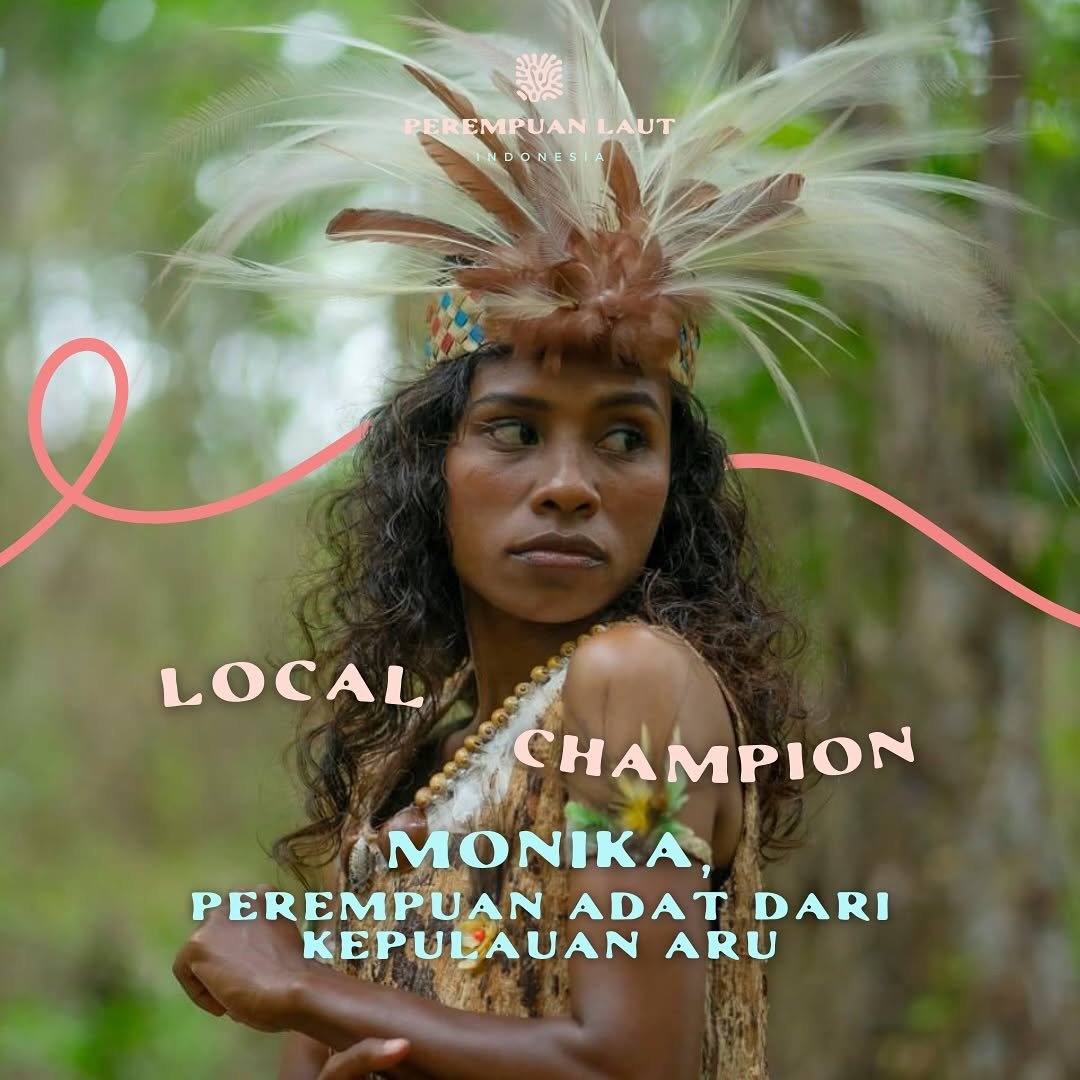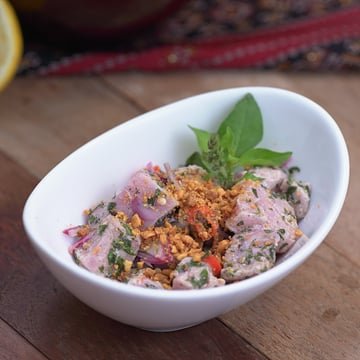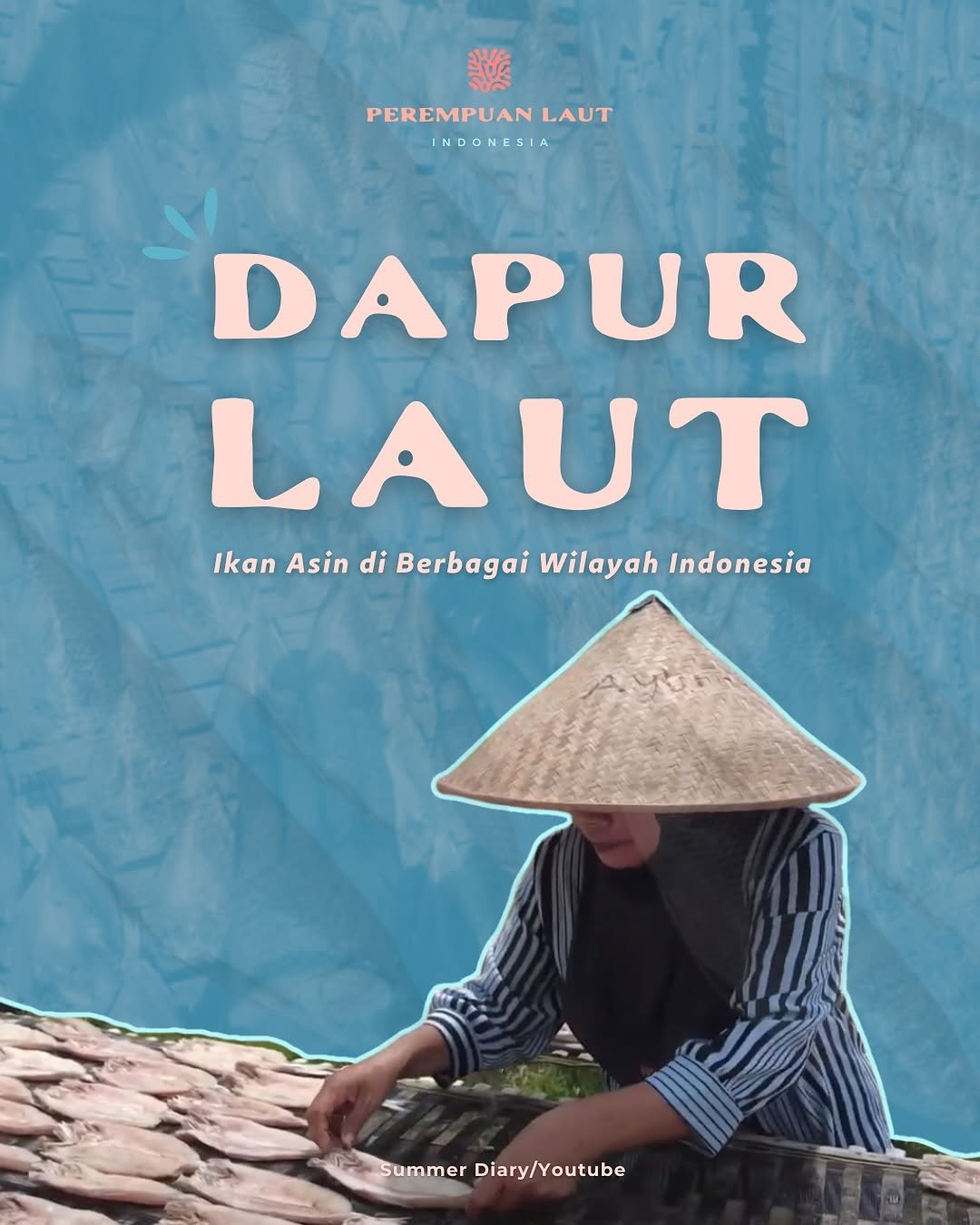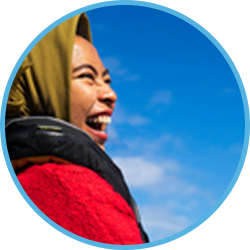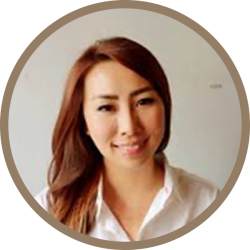“Wherever I go, whatever I do, the label of indigenous woman is always attached to me, I’m proud to be an indigenous woman”
Life background as an indigenous woman
Born and raised in the remote village of Fatlabata on Koba Island, part of the Aru Islands. Without realizing it, the label of an indigenous woman has been attached to Monika. As an indigenous woman, Monika is always careful in her every action. For her, she not only represents herself, but also her family and the values they uphold.
A life that relies heavily on nature
“We, the Aru people, have always considered nature as a mother who provides everything. In Aru, we have everything, one of which is the sea”
The sea not only provides abundant natural resources, but is also a guardian for the Aru people. When climate change occurs, the sea gives signs so that they can prepare. From the sea, they learn about life, read the signs of nature, and understand the balance of life. No wonder the Aru people are so dependent on the sea as a source of livelihood.
“Anything fresh from the ocean, that’s something nobody can’t have. I’m lucky to have this almost every single day”.
The Aru people still maintain many coastal traditions, one of which is the sea cucumber harvest. This harvest is not only enjoyed by themselves, but also shared with all residents as a form of togetherness.
The Aru Sea is an abundant source of life. Rock fish, tiger prawns, and various other marine products can be obtained easily. If the catch is abundant, people usually boil it with salt water and then dry it to make it more durable.
For Monika, anything that comes from the sea has been attached to her tongue since childhood. The flavors and memories have merged, becoming part of who she is.
The strong influence of her parents shaped Monika’s determination.
Unlike most parents who limit their daughters’ roles at home, Monika was lucky to have an open-minded father, a fisherman by trade.
From a young age, she was taught to swim in the sea, survive in the forest, climb cliffs to retrieve swallow nests, and archery for hunting. Not only that, his father always asked him about his aspirations, instilling one strong principle: “Knowledge is a weapon.
The bitter experience of not being able to get a higher education made her father determined to give Monika more opportunities. Thanks to that support, Monika is now successfully studying English in Yogyakarta and Norway.
Not only pursuing formal education, Monika also actively teaches children in her village. From English classes to mangrove conservation education. She wants to be a role model for the younger generation, showing that knowledge and care must go hand in hand.
Not stopping there, Monika also managed to invite the women in the market to preserve the seafood they sell. Monika believes that if mothers take action, their children will follow suit. Because big changes always start from small steps, in the middle of one’s own community.
Hope for the people of Aru
Over time, Monika realized that coastal traditions and marine sustainability in Aru were eroding. Through her current role, Monika hopes that the Aru people will remember that the sea is their source of life and that their traditions cannot be separated from it.
More than that, she wants the Aru people to return to their identity, preserving the heritage that has been passed down from generation to generation.
“Because there is something to protect in the Arafura sea”.
Why Sea Women?
“The sea is something that connects us. The sea never has a limit. The sea is calming. The sea is truly a medicine, a place for the weary soul. The sea is an alarm about the dangers of nature. I can’t live without the sea. The sea is our self, the emotion of our life”.
